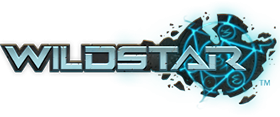WildStar: Architecting the Community
Troy Hewitt, Loic Claveau and David Bass from the WildStar Community Team share their thoughts on growing the community, ArkShip, beta and beyond.
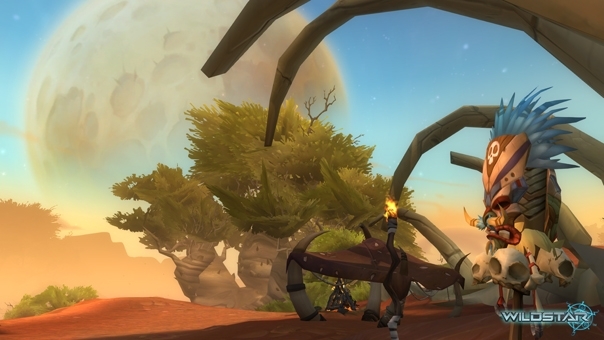
MMOs were once described to me as ‘The Longest Show on Earth’. For WildStar that show started earlier than most, after being launched at Gamescom 2011. When Carbine Studios’ flagship title launches in late 2013, the community team of Troy Hewitt, Loic Claveau and David Bass will have been courting fans and answering questions for over two years.
It’s a cold day in the coastal town of Brighton when I manage to catch up with the trio. A small group of us has been given some hands-on time with the MMO, and the conversation is bristling with excitement as we share our experiences over lunch. As I sit down to interview the team about their approach to nurturing the WildStar community, I look for signs of jetlag on their faces. But there’s nothing to be found except infectious enthusiasm.
Like kids with the keys to the candy store, this is when Carbine pulls back the curtain and does the big reveal. I can tell that they’re revelling in it, partly because of all the cool news they can finally share, but also because they can’t wait to hear from the community. And although my fingers itch with a need to get back to my Spellslinger, I can feel that anticipation all too clearly.
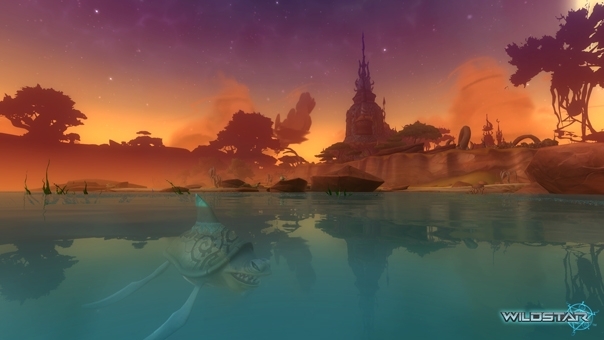
Getting the Band Together
As we talk, it rapidly becomes obvious that there’s no clear route into community management. All three have had a spell in games journalism, with Claveau writing for one of the largest gaming magazines in France. For Hewitt though, it was his time at the YMCA that served as the foundation of his approach. “The interesting thing about going from the non-profit world to games is there are a lot of corollaries between building communities in the real world and doing it online. I don’t mean to sound like I’m talking to children or creating an experience for children, but running a community is a lot like running a summer camp. You’ve got to have some arts, you’ve got to have some crafts. You’ve got to have some activities, you’ve got to recognize and encourage their contributions. The skillset is the same; it’s just a different venue.” After eight years working on Ultima Online, The Matrix Online and Pirates of the Burning Sea, Hewitt now heads up the team as Community Director at Carbine.
Claveau is the veteran of the group, having spent fifteen years in the gaming industry. After starting out in QA on Dune, he decided he wanted to play all the games rather than testing just one. He switched to journalism, writing about MMOs like Meridian 59 and Ultima Online just as the genre started to emerge. It was the latter that helped him make his mark, inspiring him to write a column named ‘The Chronicles of Ultima Online’. “And that struck a chord with a lot of players, even those that didn’t play the game. We were receiving emails saying ‘I don’t play the game, I don’t have the game, but I love to be able to read your short stories.’ Some people told me they started because they were reading”. From there, Claveau moved to SOE as the French Community Manager for EverQuest II, before joining NCsoft in Brighton. Initially working on Guild Wars, City of Heroes and Aion, it’s there that he met Hewitt and the team at Carbine, joining them as Global Community Manager.
Bass is the newcomer of the team, having been with Carbine for six months as Senior Community Manager. Hewitt and Bass have crossed paths before though in Pirates of the Burning Sea, with Hewitt eventually acting as a mentor for moving into the industry while Bass finished college. “I didn’t even know how it happened, but I got very involved in the Pirates community. It’s weird because it really wasn’t a game that I normally would have cared about, but the community was really good. And through getting involved in the community, there was one day where suddenly I was ‘Wait, there’s a job where you get paid to hang out with the community? That’s like a thing you can do for a living?’ And then I started just annoying Troy every couple of days…” After an internship at Seattle, Bass went on to work at Cryptic and later Gazillion, before switching to BioWare as part of the community team on Star Wars: The Old Republic.
For all three, joining Carbine was a natural choice because of the studio’s open relationship with its fans. As Bass described, “You’re looking for a job, you make sure that the studio agrees with you or your philosophy, and Carbine absolutely fits right in with what we want to do.” Hewitt agrees, adding that the Executive Producer’s approach also helps. “Jeremy [Gaffney] has always been really open to the transparency – he’s always been a “no bullshit” guy, and it makes it very easy for us to do our job.”
After having spent several years working in publisher-based community management, Claveau was eager to stress the importance of being part of a developer-based community team. “I’m plugged in with the developers, the people who create it, so in a way I can almost facilitate it to some degree, where I would give my feedback and it’s just that human bond you have with people, right?” Hewitt expanded further, stressing how important it is for them to be involved in the daily goings on. “That there’s no talk to so and so to get permission to talk to so and so, if there are questions or issues, these guys are free to go in. To the degree that, as time allows, these guys get to participate in the creation of and discussions around features, and how those features will impact the community, or community building, or even just because if someone has a passion for eSports, I feel that he should be the expert in hanging out with the people that are creating the systems that might fit into his passion.” Claveau was one of the earliest TV journalists with an interest in eSports, covering the first WCGC in Korea.
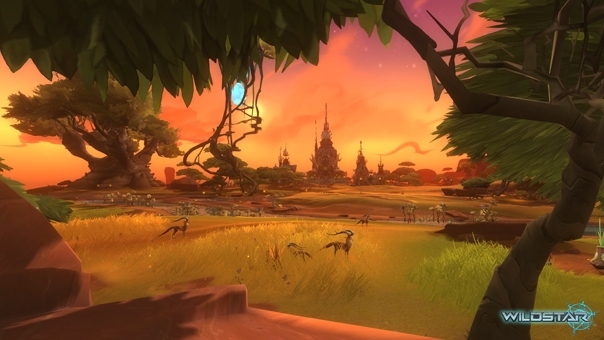
Hum That Tune
There’s no doubt that joining Carbine at an early stage helped to embed that community culture throughout the studio. But when I asked Hewitt about how they came up with WildStar Wednesdays, the Uplink and so on, he smiled knowingly. “I’ll let you in on a little secret. Every community manager goes from job, to job, to job, with a wish list. Sometimes your wish list grows depending on the crap that you weren’t able to do at your last job. And so I came with some very specific ideas, but to say that was my plan would be a lie, because I think that community building is best done collaboratively.”
Hewitt went on to explain that he shared his hopes and dreams on the frequency of updates before WildStar was announced, creating a challenge with Marketing and PR. “They were saying ‘We don’t want you to share a lot of information’ and I was saying ‘No, we need to start building our community’.” From there, Hewitt said that it seemed natural to focus on doing three things a week, with three major items planned for each month. It’s not always been easy, and with limited information the team has needed to “dig deep” in order to produce an update. “We got called out on it a couple of times with some people saying ‘That’s your update? That’s not a big update’.”
It’s also been a challenge for the team to keep the ideas mill running. Claveau described how, 18 months since the original announcement, they’re still coming up with fresh ideas. “Basically we sit down, brainstorm it and go wild. Sometimes we’re like ‘No, that’s completely rubbish, but maybe we can do this?’ ‘Oh, that’s not bad!’ And then we go to another idea and it’s like ‘Oh yeah that’s awesome! What about doing that in two parts?’
“We also have a production calendar, so we know roughly when stuff’s going to happen. So what we do is we plan accordingly with that, and also with Marketing, because they want to announce stuff, they want to release banners, a campaign or whatever, and so it’s ‘they’re going to announce [REDACTED] now, let’s do a feature about [REDACTED]!’”
While Hewitt is eager to open a window on the development process, he also wants to throw the spotlight onto players. “For me personally I feel like it’s our job to make our team the stars, and to also use that same philosophy as it applies to players. They’re paying for our service, they’re doing amazing things, let’s take a poem that they wrote and turn it into a song. And that’s the kind of interaction – it took some time to build that, but everybody at Carbine is really open to the notion of not being afraid of players.”
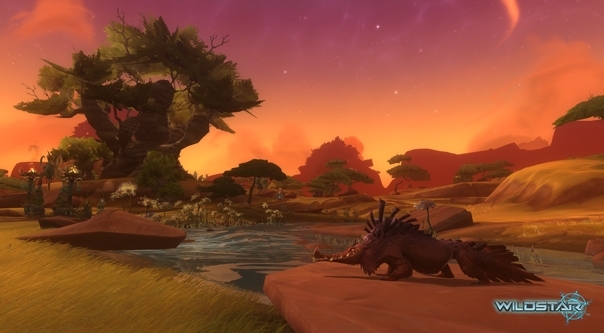
Nurturing the Seed
Since announcing WildStar, Carbine has been careful to allow the community to develop naturally rather than pushing it into overdrive. As Bass explained, there have been some distinct advantages to that steady growth. “Whenever someone shows up in the community, who’s all like ‘Here are my demands for an MMO and here’s everything that every game does wrong.’ the community that’s already there welcomes that person in and shifts its style to be more of a ‘well, we’re much more of a productive and constructive community here’, and it’s amazing. It makes our lives easier.” Hewitt added that there’s a certain amount of expectation management that goes on as well. “For instance, I wouldn’t suffer someone being abusive to anybody, whether it was one of my guys, me or one of the devs. And that’s not to say I’m like ‘don’t be a dick’, I’m not screaming at folks, but we do, in our own quiet way, establish what those expectations are in the way that we interact with those micro-communities.”
It’s one of the reasons why WildStar Uplink changed from being a pure Twitter discussion to the opportunity to put questions to the developers. Bass explained to me that the idea came from a fan complaining about the Uplink Analysis posts in an IRC conversation. “They were like ‘All you’re doing is just rehashing and reposting the conversation.’ And I said ‘Yes, that’s in case you missed it.’ He said ‘Well no, what we would love to see is you guys responding to the conversation.’ And I said ‘That is a brilliant idea!’”
“Now we repost the conversation, but we also grab someone in the studio, say ‘Hey, read this conversation, tell us what you think. Do you agree with people, do you disagree with people?’ And that was all because of one of the fans suggestion, and I was like ‘why didn’t we think of that?’” By highlighting good questions in their Uplink Analysis blogposts, the team also hopes to encourage more people to join the conversation.
